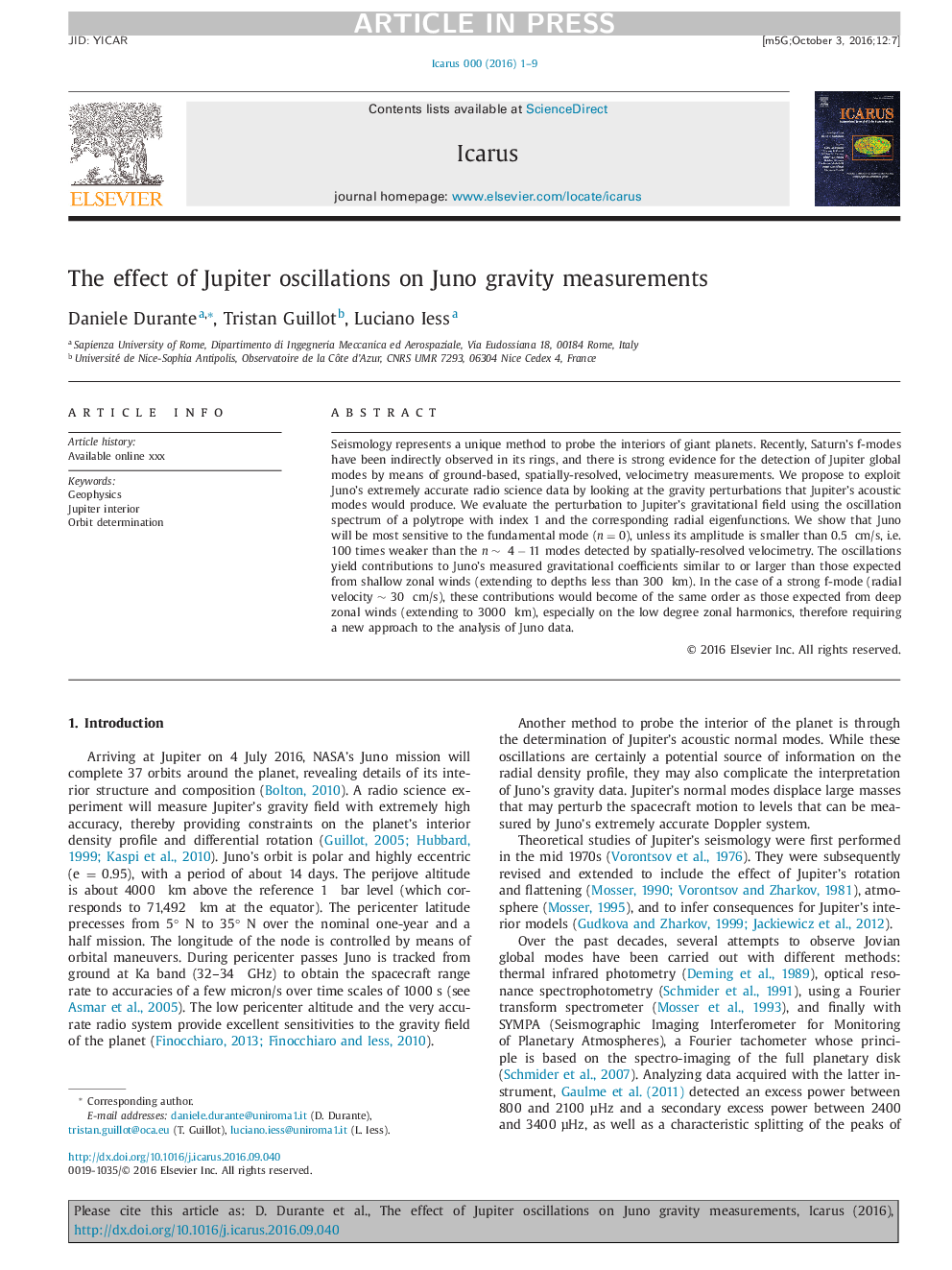| Article ID | Journal | Published Year | Pages | File Type |
|---|---|---|---|---|
| 5487412 | Icarus | 2017 | 9 Pages |
Abstract
Seismology represents a unique method to probe the interiors of giant planets. Recently, Saturn's f-modes have been indirectly observed in its rings, and there is strong evidence for the detection of Jupiter global modes by means of ground-based, spatially-resolved, velocimetry measurements. We propose to exploit Juno's extremely accurate radio science data by looking at the gravity perturbations that Jupiter's acoustic modes would produce. We evaluate the perturbation to Jupiter's gravitational field using the oscillation spectrum of a polytrope with index 1 and the corresponding radial eigenfunctions. We show that Juno will be most sensitive to the fundamental mode (n=0), unless its amplitude is smaller than 0.5Â cm/s, i.e. 100 times weaker than the nâ¼4â11 modes detected by spatially-resolved velocimetry. The oscillations yield contributions to Juno's measured gravitational coefficients similar to or larger than those expected from shallow zonal winds (extending to depths less than 300Â km). In the case of a strong f-mode (radial velocity â¼ 30Â cm/s), these contributions would become of the same order as those expected from deep zonal winds (extending to 3000Â km), especially on the low degree zonal harmonics, therefore requiring a new approach to the analysis of Juno data.
Keywords
Related Topics
Physical Sciences and Engineering
Earth and Planetary Sciences
Space and Planetary Science
Authors
Daniele Durante, Tristan Guillot, Luciano Iess,
